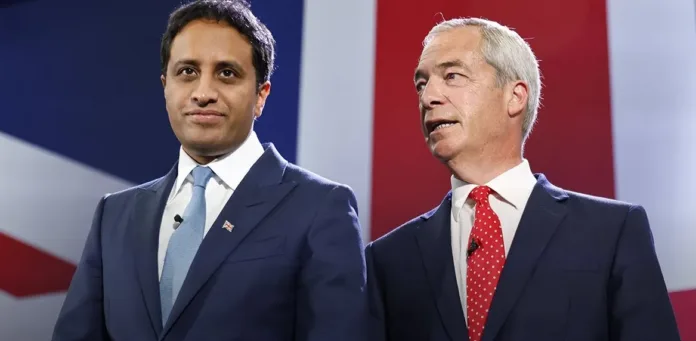Zia Yusuf says Reform would pack Cabinet with unelected peers and outsiders, not MPs
Nigel Farage is plotting to rip up the foundations of Britain’s parliamentary system, replacing the traditional Cabinet of elected MPs with a US-style line-up of unelected “experts” and peers, according to one of his top allies.
Zia Yusuf, now a key figure in Reform UK, revealed that as many as half of the Cabinet in a Farage-led government could be drawn from the House of Lords rather than the Commons. The shake-up, he argued, would bring “galactic-level talent” into government—people who otherwise avoid frontline politics because of the grind of constituency work.
The plan is likely to spark fierce debate about democratic accountability, with critics already warning it would sideline elected MPs in favour of handpicked figures with no direct mandate from voters.
In an interview ahead of Reform’s annual conference in Birmingham, Yusuf claimed that “household names” were already expressing interest in serving in a future Farage Cabinet. He would not name them, but said they represented “galactic-level talent” who could transform Britain’s leadership.
Yusuf himself signalled his ambition, openly suggesting he would be well-placed to serve as chancellor. With a background in business, he argued that he had the skills to steer the economy better than career politicians.
The proposal marks a striking departure from Westminster tradition. Unlike Labour and the Conservatives, Reform has no shadow cabinet. It currently has just a handful of MPs—five elected at the last general election, one more added through a by-election, though two have since departed. That leaves Farage with a shallow pool of elected representatives to choose from, forcing the party to look elsewhere for potential ministers.
Yusuf dismissed concerns that the model would break with Britain’s democratic norms. He argued that making MPs double up as both ministers and constituency representatives diluted their effectiveness.
“We don’t think it makes sense for the minister of defence to be dealing with chlorine levels in the local swimming pool,” he said. “That’s an important issue, but I don’t think one person is necessarily best suited to do both.”
He added that the best candidates to run government departments often had little interest in constituency surgeries or the day-to-day grind of backbench life. “We’ve got to optimise for the best possible people, and I wouldn’t put any upper limit on how many could be drawn from the Lords,” he insisted.
Farage’s strategy is to unveil his Cabinet closer to the next election, which could mean voters waiting until 2029 to learn who might actually run departments under a Reform government. The secrecy risks fuelling accusations that the party is keeping its cards too close to its chest, banking on Farage’s personal brand rather than a team.
But Yusuf insisted the wait was tactical. “The number of people coming forward to help Reform, either behind the scenes or on the front line, is growing all the time,” he said. “Some of these people are household names… we’d be very proud to have them serve our country.”
Reform’s conference, built around the theme of “the next step”, opens with the party riding high in opinion polls, with about a third of voters now saying they would back it. The challenge for Farage is proving that his insurgent movement not only has momentum but also the machinery and talent to govern.
Whether his vision of a government led by unelected peers and outsiders can survive scrutiny—or voters’ appetite for accountability—may decide whether Reform remains a protest party or becomes a genuine force of power
